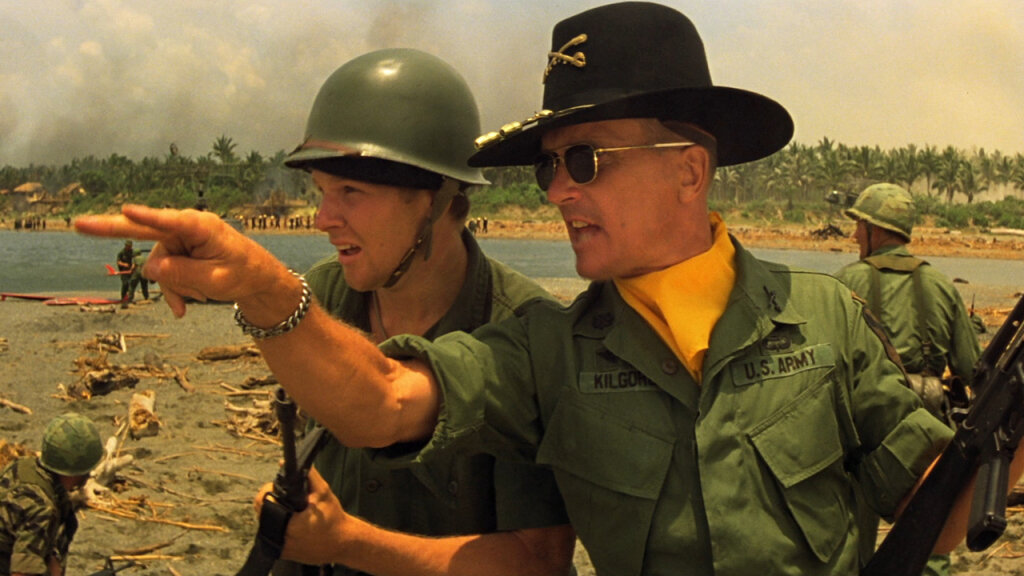Split Decision: Welcome to the Jungle
Welcome to MovieJawn’s Split Decision! Each week, Ryan will pose a question to our staff of knowledgeable and passionate film lovers and share the responses. Chime in on Twitter, Facebook, our Instagram, or in the comments below.
This week’s question:
In honor of The Jungle Cruise, what is your favorite movie that takes place in a jungle?
Tragic Jungle, which is currently on Netflix. The film recounts the Xtabay myth about the female seductress who lures men to their deaths. Set in the 1920s, a young woman (Indira Rubie Andrewin) escaping an arranged marriage enters the jungle and discovers a group of Mexican workers who are harvesting chicote (chewing gum). Before long, the film becomes Ten Little Indians. This intense and highly atmospheric drama features moments of magical realism as well as many scenes of wild animals that contribute to the palpable sense of claustrophobia, Listen to the jungle, the jungle likes to talk.–Gary M. Kramer, Staff Writer
Lost City of Z is an absolutely fascinating story that seems too impossible to believe. I love it for Robert Pattison’s performance and the way that James Gray’s screenplay reframes the ‘British Explorer’ archetype in order to deconstruct it through a post-colonial lens. –Ryan Silberstein, Managing Editor
All jungles need a rope bridge and Sorcerer has the Queen of All Rope Bridges. Sorcerer is a killer remake, a beautifully drawn out tension exercise and a cool ass truck movie. Roy Scheider is so good at barely holding it together.–Alex Rudolph, Staff Writer
Predator. Someone was like, "Hey, what if we took Aliens and crossed it with Rambo?" and somehow it worked. Predator is just the right amounts of stupid and smart, with nonstop action, quotable dialogue and a batshit crazy ending that rules. It goes from Schwarzenegger and his crew vs an unstoppable monster to Schwarzenegger goes Herzog against this thing that represents all his fears.–Billy Russell, Staff Writer
I'll second Predator. I agree with everything Billy mentioned, but I also want to add in the point-of-view shots that we get from the Predator. It's another example of something that could have played out horribly but instead manages to brilliantly kick the tension up another notch. Quotable, action-packed and often unintentionally funny, it's one of those endlessly rewatchable movies for me. –Matt McCafferty, Staff Writer
Predictable though it may be, Apocalypse Now is my pick. t’s a nightmare- a beautiful one at that, the greens of the jungle, the oranges of fire, the red of blood. It is thematically simple, but it might be the greatest looking American movie ever made..–A. Freedman, Staff Writer
Though Werner Herzog’s Aguirre, the Wrath of God is more...jungle-y, his return to the jungle ten years later with Fitzcarraldo is my personal favorite. Fitzcarraldo has a lot of the same Man vs. Nature elements as Aguirre, including Herzog regular Klaus Kinski playing one of his trademark wild-eyed lunatics, but where Fitzcarraldo wins is by depicting one man’s attempt to dominate the natural world. In his efforts to build an opera house in the Amazon, the titular man of culture has his ship dragged over a mountain in his efforts to bring “culture” to the uncivilized jungle. It’s as much of a fool’s errand as you would expect and ends with one of cinema’s great moments of hubris and a testament to the jungle’s perpetual wildness. –Ian Hrabe, Staff Writer
Herzog’s jungle epics are two sides of the same coin, and while Ian prefers Klaus Kinski’s foolhardy plot to defeat the jungle (Fitzcarraldo), I have to go with Klaus Kinski’s foolhardy plot that’s defeated by the jungle (Aguirre, the Wrath of God). The film’s descent into chaos mirrors its own troubled production, and Kinski’s violent and unstable Don Lope de Aguirre seems…. not far off from Kinski himself. Eventually, Aguirre is left as the expedition’s only surviving member, only to see his raft invaded by the Amazon’s monkeys. No match for the enduring power of the rainforest. And did I mention that exquisite Popol Vuh score? –Ryan Smillie, Staff Writer
In The Mosquito Coast (1986), the jungle setting offers a means of exploring the American dream, utopia/dystopia, technology vs. nature, loyalty, family, power, and the coming-of-age experience. It’s not perfect, but it offers some complex performances, particularly Harrison Ford as the brilliant-yet-megalomaniacal patriarch and River Phoenix as the son often pressed into the roles of accomplice and cleanup crew. Meanwhile, Martha Plimpton’s character provides insight into other ways parents attempt to control their children’s lives. The Mosquito Coast may be triggering for those with family-of-origin trauma and enlightening for those without it. But I remain confused about the meaning of the teenage Emily’s claim that she thinks about Charlie while she is in the bathroom -- in what world is that sexy? –Melissa Strong, Contributor
Death in the Garden has a bit too much action and adventure to be one of my favourite Buñuel films, but there are a few scenes of surrealism that are unforgettable (no matter how hard I *try* to forget). EWWW. But also, yes! –Ashley Jane Davis, Staff Writer









